Hello to you all from our collective living/dining/bedrooms! As we are all adjusting to working from home we thought it would be interesting to write a collaborative article on working from home as marine biologists. What are we up to? How are we coping without our beloved snorkels or hugging a dolphin? Or perhaps most importantly, how do we see the world post pandemic and what impacts do we think COVID-19 might have beyond the lockdown of society on our seas and oceans?
Who are we and what do we do?
We are a motley crew of biologists and ecologists from all over the world all working within the snappily named “Invertebrate Ecotoxicology Lab Group” at the University of Exeter.
Invertebrates are animals without a backbone and ecotoxicology is the study of how pollutants affect biological life. Based on the Streatham Campus in the City of Exeter we normally fill our time working in the laboratories running experiments relating to marine pollution or processing samples taken from all over the world to find out where are the problems facing life on the planet and how bad are they.
We have a very broad focus; from a global scale looking at how pollutants are spread across the planet, down to their effects on individual organisms or even the cells within an organism. Trying to understand the impacts of pollutants in the environment such as nano- and micro-plastics, oil, heavy metals or broadly carbon dioxide (from burning fossil fuels) can be a daunting task but by asking specific questions and then working towards answering them, we develop little pieces of the global puzzle to work towards solutions. We hope that our pieces match with the work of others across the world, and together, we build a picture of how the planet is now, how it may be in the future, and hopefully how we can work together to conserve it rather than damage it.
How do you do biology from home?
Although testing snorkelling techniques in the bath tub may be a worthy use of time for a land-locked marine biologist, the lack of lab access and vitamin sea is challenging and so is navigating a fundamental change to the focus and nature of your work. Although we may rather be in wetsuits, preferably in tropical destinations, or in our thermals out on the polar seas, there is actually quite a lot that can be done at your desk to progress your science.
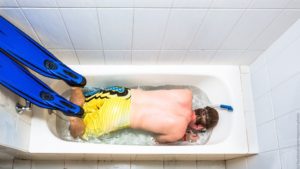
Firstly, as researchers, we have a responsibility to communicate our work to other scientists, policy-makers and the general public, and, when productivity allows, a lot of us are writing at the moment. We are writing up our research for publication, writing and amending plans that must be more adaptable than ever and even writing songs lamenting how much we miss the lab. There is also a wealth of reading to be done, catching up with the new findings of colleagues around the world to inspire us to critically analyse our work and think creatively of the next steps.
The humble art of meta-analysis is our friend right now, gathering data from a variety of sources to piece together evidence from decades of scientific investigation looking at different aspects of a particular problem and how this changes over time and with geography. During this time of societal reflection, we can also spend time reflecting on science in a methodical way, pulling together all of this research, collecting the facts and figures from hundreds of papers, and then stepping back to look at the bigger picture unfolding before us. The amazing thing about the global science community is the amount of data that are out there and now is certainly a time to celebrate how lucky we are to have good access to the internet and these amazing resources of human knowledge.
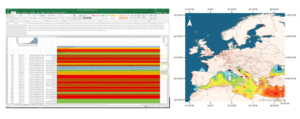
Some of us are learning new skills such as Geographical Information Systems (GIS) that allow us to create visual maps of data such as how plastics and other pollutants spread globally to pinpoint future intervention areas. Others are learning new data analysis software and some of us are improving our foreign language and sourdough making skills. The wealth of free software through open-source platforms (such as R and QGIS) and access to education (through sourdough YouTube videos and the like) is another thing we are grateful for during lockdown here in the UK, learning from millions of other users across the world.
Also, we have been enjoying teaching from home, doing sessions with undergraduates as well as giving public outreach talks and supporting home-schooling families. Arctic Live has proven to be a huge success reaching 60,000 kids across the world (Encounter Edu have loads of online and importantly free teaching resources for use at home or school) with a number of staff and PhD students from Exeter as well as Plymouth Marine Laboratories teaching from their homes. This has been bittersweet as these lessons should have taken place whilst on location doing fieldwork in the Arctic but it has been amazing to provide this free resource to kids across the world.
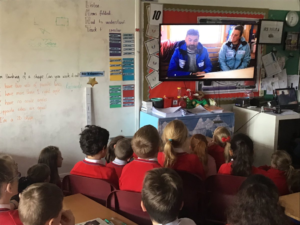
For others, lockdown is a time to process data already collected. Research expeditions whilst incredibly exciting are often chaotic with little time to rest. As scientists, we want to maximise our opportunities to collect information from the unique locations we have access to, such as the Southern Ocean surrounding Antarctica. Lockdown has given us time to step back and look at the breadth of information we have already, as well as planning how to move forward when we return to some form of normality.
Those of us with children were thrown into a hectic working environment at home during lockdown as schools and childcare closed and time outdoors was restricted. Finding ways to get an hour of work done was an achievement in itself, with entertaining and home-schooling a child often taking priority. It was quite clear to supervisors early on that ambitious targets were not going to be met, zoom meetings are constantly interrupted and the newly purchased office chair was used as a merry-go-round. However, home-grown experiments and learning have taken place! Sink-or-float, ‘making floods’, planting seeds, bird spotting, flower identification and watching for hedgehogs are all good sessions. Despite the challenges, and the impact to work, spending more time at home as a family has been a privilege, something we will always treasure.
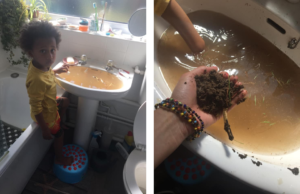
What do you think the bigger implications of this global pandemic might be for the planet’s health?
The global pandemic has the opportunity to be a huge reset button for how we interact with the natural world. Whilst we have all had to make huge changes to our daily lives, and the impacts of this pandemic are painful and serious, we are seeing some positives in all of this. Wildlife is returning to urban spaces, like the mountain goats that took over a town in Wales, Pandas in zoos that with added privacy are mating naturally (New York Times), noise in the oceans has reduced giving whales and other marine organisms a reprieve from the constant hum of boat traffic (The Narwhal); all of this because human activity has stopped.
Conservation Concerns
There is, however, evidence to suggest that some areas of the environment are now at greater risk of being exploited. As the world’s attention has shifted to an almost myopic gaze on COVID-19 (who’d have thought we’d stop talking about Brexit!), in Brazil, deforestation has increased by 50% in the first quarter of 2020 compared to the same time period last year (Simon & Castano, 2020). The Amazon rainforest is considered to be a carbon sink which can absorb around 600 million tonnes of carbon annually (phys.org), playing a key role in climate regulation. The reduction in funding (as fundraising activities have mostly ceased for conservation groups) is also putting many conservation projects at risk and the disruption to long-term data collection and monitoring work in Marine Reserves is a concern. The Galapagos Islands, Ecuador is one of our major study sites and there are concerns around illegal shark fin fisheries operating whilst tourism is shut down and Park Rangers are not permitted to do their usual patrols. The severity of this risk has been recently highlighted with the seizure of 26 tonnes of Ecuadorian shark fins in Hong Kong in May 2020 (primarily protected silky and thresher sharks), the largest seizure in history (Oceanographic Magazine) and an example of wildlife trafficking continuing at full throttle. Ensuring that marine protected areas are monitored is a high priority to limit these potential threats.
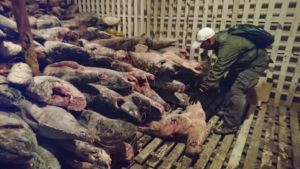
Consumerism, Waste Management and Global Pollution
A decrease in global pollution, specifically air pollution has largely been attributed to a lack of travel and decrease in industrial work. The ESA (European Space Agency) and NASA (National Aeronautics and Space Administration) have reported that the release of the gas Nitrous Oxide (NO2) into our air, which can have implications on human health, has decreased by up to 30% in areas (Dantas et al., 2020). Also, declines in beach litter have been noticed and attributed to the lack of tourism (Zambrano-Monserrate et al., 2020). Although these may only be short term effects, they allow both scientists and the general public to envision what a future could look like with reduced pollution.
As we have seen, plastic has an essential role in protecting people, especially frontline workers, during the COVID-19 pandemic. However it has driven an increased use of single-use plastics, especially by the general public in the form of gloves and face masks that may have impacts in the environment. There are numerous anecdotal reports of gloves strewn across parts of the UK and a similar picture has emerged as fast food restaurants re-open drive-thrus and customers dump waste out of their car windows to maintain a contact free dining experience (BBC News). There is also a systemic fear that industry may try to take advantage of the uncertainty around the pandemic to push back against hard-won environmental measures to reduce plastic pollution however there is some evidence that Corona viruses may persist longer on plastics (van Doremalen et al., 2020).
The European Commission has uploaded a document online entitled “Waste management in the context of the coronavirus crisis”, where you can find advice on the best practises to dispose of waste while protecting human health and the environment (European Commission). According to this report, “each person produces nearly half a tonne of municipal waste per year in the EU on average, which means that every week more than 20 kg of municipal waste is generated per household.” People are producing more waste during this pandemic as they spend more time at home and buy more food to cook at home or take away food with their disposable containers and cutlery.
The good news is that, although more plastic waste is being produced at home, consumer mindsets are changing. It seems that, overall, people are centered on their most basic needs, spending less and only essentials. People are shopping more consciously, buying local and are embracing online shopping and it is predicted that these changes may persist beyond this pandemic.
The Impact on Travel and Tourism
We all love to visit far off distant places in the world, those picture perfect postcard locations… but how has the COVID-19 virus affected travel and tourism? The travel and tourism industry globally supports 330 million jobs and has been severely affected by the pandemic. It has been predicted that over $2.7trillion (WTTC) will be lost as a result of travel restrictions and lockdowns. The COVID-19 pandemic has had an unprecedented effect on travel and tourism, we have all seen the before and after pictures of beaches, cities and airports normally busy, now deserted. Not even the economic crisis in 2008/9, MERS, SARS or even the September 11th terrorist attacks have had such an impact on International travel as the COVID-19 virus has had (Gossling et al. 2020).
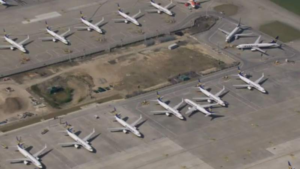
Despite the immediate and severe impacts of this pandemic, there is hope that it will lead to a positive change in attitudes towards travel and tourism. In the UK, since the start of lockdown, cycling has increased which has prompted many towns and cities to widen or increase the number of cycle lanes, allowing for safer travel and increased distance between commuters (BBC News). Many other cities across the world have carried out or pledged similar improvements since the start of lock down, the challenge remains in keeping or making these changes permanent. There are signs of this happening already as The Mayor of London recently announced an ambitious plan to close off parts of central London allowing for safer walking and cycling (The Guardian) and France has announced schemes funding bike repairs and cycle training to encourage people to continue cycling after the pandemic (BBC News).
Cities such as Venice, Italy; Amsterdam, Netherlands and Barcelona, Spain all experience what is termed as overtourism. Overtourism occurs when too many visitors visit a certain destination at once leading to congested streets. The drop in tourism has had significant effects on these economies but many cities are using the time as an opportunity to look towards more sustainable travel. Venice for instance is looking to implement a tourist tax on day trippers in 2021 to attempt to curb visitor numbers (The Guardian). A term now being used is ‘SlowTravel’ – using sustainable transport or taking fewer but longer trips (Smarter Travel) and perhaps this will be one way we make a change for the planet whilst still enjoying the benefits of a global society.
So What Comes Next?
If we can come out of lockdown in the right way, there could be huge positives to come in the wake of tragedy. Economic instability is a big concern in terms of willingness to invest in conservation and sustainability innovations but this time to reflect may be just what we need as a society to start to hold industry and politicians more accountable for the way we are treating the planet. The opportunity to build more cycle paths and reduce our reliance on carbon based transport beckons, the fragility of our reliance on oil exposed and perhaps investment in green energy and technology will follow. We are seeing universities and other businesses considering whether this represents an opportunity to “press reset…on the business model….to give ourselves a more sustainable future” (World Economic Forum). To quote The Guardian newspaper in their environmental editorials “We’ve never had a better chance to make a greener world. COVID-19 has delivered unusual environmental benefits: cleaner air, lower carbon emissions, a respite for wildlife”, the question remains as to whether we will all take this opportunity or squander a chance to make huge leaps in transformative change for people and the planet.
The Authors
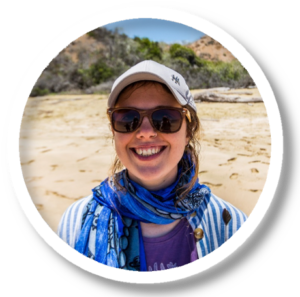
Jen Jones is a marine biologist, conservationist and marine iguana fanatic researching the impact of plastic pollution on the marine foodweb of the Galapagos Islands. University of Exeter PhD student and Galapagos Conservation Trust Project Manager; she is a wonder multitasker! @Jenguin_Jones
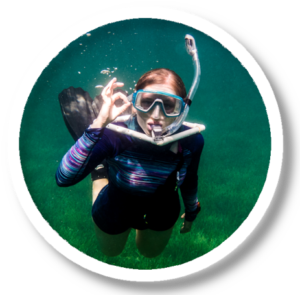
Alice Wilson McNeal is a University of Exeter PhD student and marine ecotoxicologist happier in the sea than out of it, researching how climate change affects the toxicity of ocean pollution. @MarineBioAlice
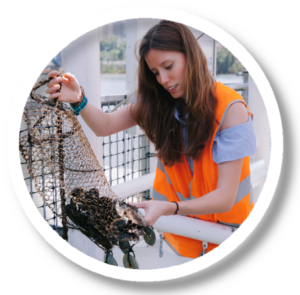
Francisca Ribeiro is a marine biologist with a recent interest in analytical chemistry, who is trying to create easier ways to give an estimate of the amount of plastic a consumer might be exposed to by ingesting seafood. She is a PhD student and part of the QUEX partnership between the University of Queensland Australia and the University of Exeter.
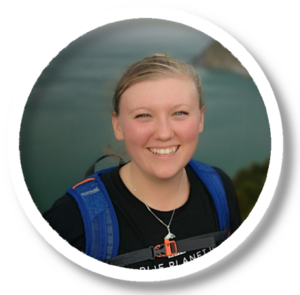
Stephanie Andrews is a marine biologist, lover of the outdoors and happiest either by or in the sea. Interested in the functioning of aquatic ecosystems in a changing world, currently researching the ecological impacts of microplastics in river systems for her PhD at the University of Exeter. @CidtheSquid57
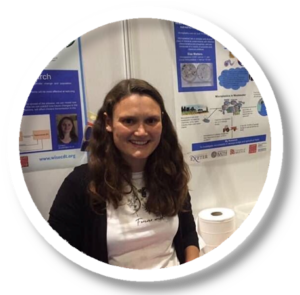
Daisy Harley-Nyang worked as a scientist in microbiology laboratories for the Environment Agency and APHA before returning to university. She is now a PhD student at the University of Exeter researching microplastics in wastewater and sludge. She is learning to juggle PhD life with family life; her three year old son, Omar, is a keen environmental activist and she likes nothing better than running, cycling or walking the North Devon countryside where she lives or wild swimming in a river, lake or sea.
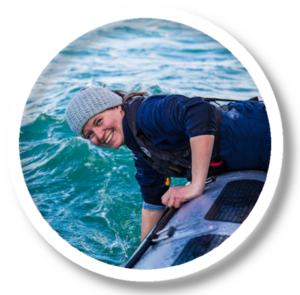
Katherine Colvin is a sailor come marine biologist investigating methods to rapidly assess the environmental impacts of oil spills. She is a PhD student at the University of Exeter, happiest on or in the water, and interested in human impacts on marine life and effective mitigation. @ColvinMarine
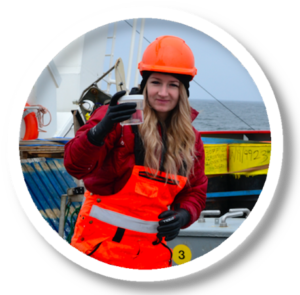
Emily Rowlands is a marine biologist happiest in the choppy seas, with a recent interest in the polar regions. A collaboration between University of Exeter and British Antarctic Survey, her PhD investigates plastic pollution in the Southern Ocean surrounding Antarctica. @EmilyRowlands89
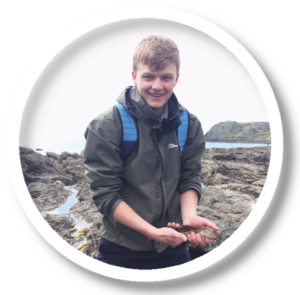
Jake Bowley is a rockpool specialist and an Exeter University PhD student in marine biology and microbiology, researching the attachment of harmful bacteria to microplastics and their role in disease transfer to animals and humans. @Jake_Bowley
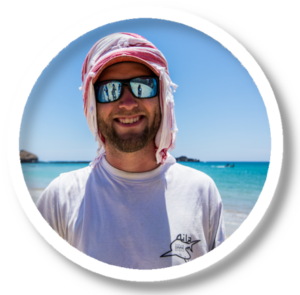
Adam Porter is a mad mix of scientist and artist with a love of the outdoors, photography and exploration with a passion to help reverse negative human impacts on the planet. He finished his PhD at the University of Exeter in 2019 (and still feels weird about being a Doctor) and is now a NERC Postdoctoral Fellow at the University of Exeter. @ap3489
